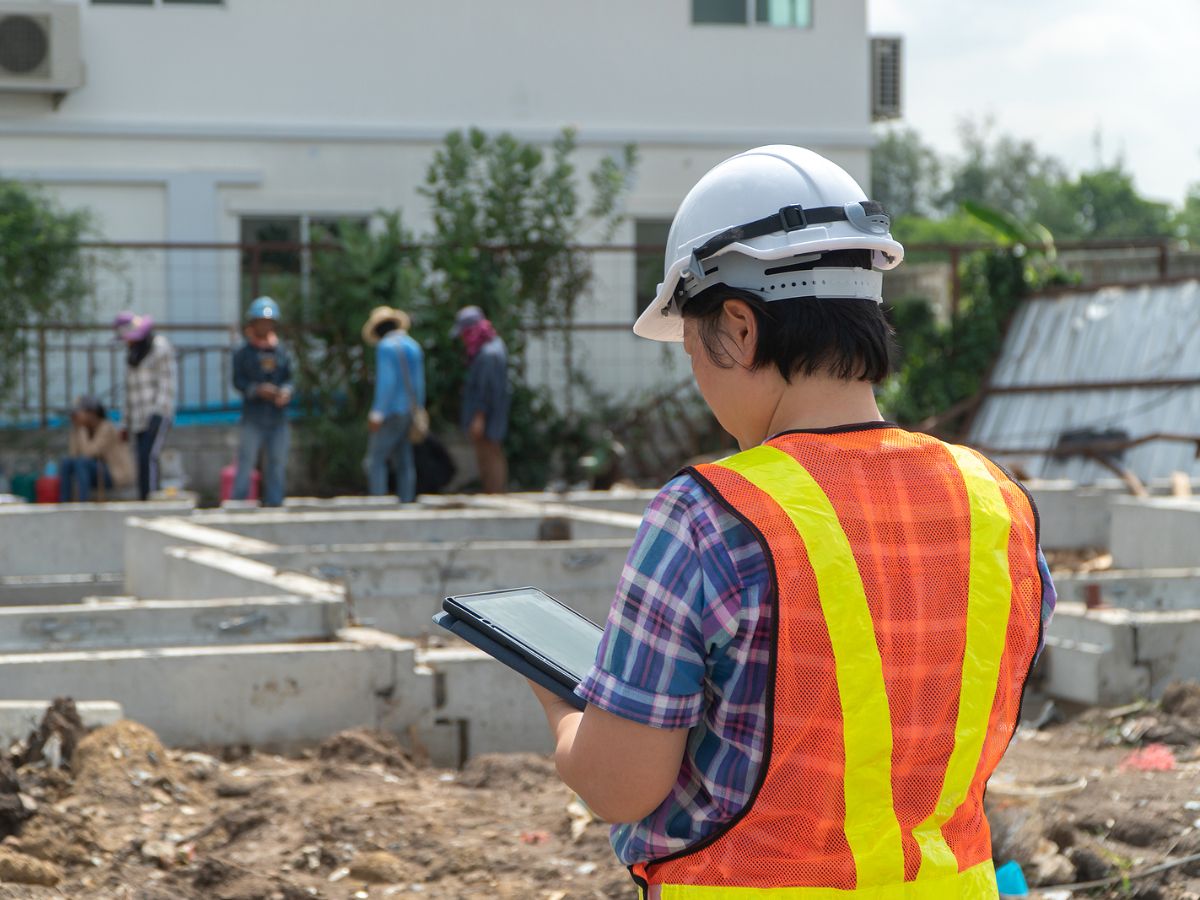The construction industry is experiencing a transformative shift thanks to various innovations. Sustainability, digital platforms, and other groundbreaking technologies are driving unprecedented growth and efficiency across commercial restoration, HVAC, electrical, and plumbing sectors. But what exactly are these innovations, and how can they shape the industry’s future? Dataforma, a provider of commercial construction software for contractors nationwide, highlights some of these construction industry trends.
Digital Platforms: Transforming Construction Management
Digital platforms are revolutionizing the way construction projects are managed. These construction project management software options help a contractor streamline processes, improve communication, and enhance productivity.
The Rise Of Construction Management Software
Construction management software has become an indispensable tool. These digital platforms assist in planning, executing, and completing construction projects with greater efficiency. With features like managing employees, invoices, CRM, and other capabilities, they make it easier to meet deadlines for a seamless project.
- Project Scheduling: Digital Calendars & Timelines For Meticulous Planning
- Budget Management: Real-Time Expense Tracking For Budget Monitoring
- Resource Allocation: Streamlining The Assignment of Labor & Materials
- Document Management: Centralized Storage For Blueprints, Permits & Contracts
Advantages Of Digital Solutions For Commercial Contractors
Commercial contractors benefit significantly from implementing digital solutions. This shift toward smart construction, which integrates technology and data into every phase of construction, reduces paperwork and errors by moving documentation online. As a result, construction firms enjoy increasing efficiency.
- Improved Collaboration: Enhanced Communication Between Task Forces & Headquarters
- Predictive Analytics: Data-Driven Insights For Future Project Optimization.
- Remote Access: Manage Projects From Anywhere Using Mobile Applications
- Less Paperwork: Electronic Documentation Reduces Error & Increases Efficiency
Sustainability As A New Norm
Sustainability in construction is no longer a mere option- it’s a necessity. The push for green building practices, energy efficiency, and waste reduction is motivating contractors to adopt sustainable practices.
Why Sustainability Matters
The need for sustainability arises from both environmental and economic pressures. With increasing regulatory mandates and consumer consciousness, sustainable construction practices are essential for maintaining competitiveness.
- Reduces Carbon Footprint – Sustainable methods significantly decrease greenhouse gas emissions.
- Cost-Effective – Although the initial cost may be high, sustainable buildings save money in the long run through reduced energy and maintenance costs.
- Healthier Building Environments – Green buildings offer improved air and water quality.
Popular Sustainable Practices In Construction
Various practices have gained traction within the construction industry. These advancements aim to enhance project quality while minimizing risks and environmental impact. Key practices include:
- Recycled & Renewable Materials: Using Materials Like Recycled Steel & Bamboo
- Energy-Efficient Systems: Solar panels, LED lighting, & Smart HVAC Systems
- Water Conservation: Rainwater Harvesting & Greywater Recycling
- Minimalist Design: Waste Reduction With Efficiently Spaced Structures
Innovations in Material Science
The advent of new construction materials is another game-changer. Innovations in material science lead to stronger, lighter, and more efficient building materials. Several advanced materials are now at the forefront of modern construction including:
- Graphene-Enhanced Concrete: Stronger & More Durable Than Traditional Concrete
- Self-Healing Materials: Materials That Can Repair Cracks & Damage Autonomously
- Insulated Concrete Forms: Better Insulation & Reduced Energy Costs
- Engineered Timber: Sustainable Yet Versatile Wood Products
Impact of Advanced Materials On Construction
The benefits of integrating these advanced materials are multifaceted. By leveraging these advancements, building contractors can not only improve the performance of their structures but also gain a competitive edge through faster project completion, reduced maintenance, and significant long-term savings.
- Enhanced Durability: Buildings Last Longer and Require Less Maintenance.
- Energy Efficiency: Improved Insulation Reduces Energy Consumption.
- Faster Construction: Pre-Fabricated Materials Streamline The Building Process
- Cost Savings: High Initial Costs Yield Substantial Long-Term Savings
Emerging Trends In Construction Safety
Safety remains a top in the construction industry. Emerging trends and building technologies are making worksites safer than ever before. These modern safety innovations contribute significantly to minimizing risk, with options such as:
- Wearable Technology: Smart Helmets & Vests Monitoring Worker Health
- Virtual Reality Training: Immersive Training Environments To Prepare Workers
- Automated Monitoring Systems: Real-Time Monitoring of Site Conditions
- Safety Drones: Aerial Surveillance For Hazards & Ensuring Compliance
Learn About The Future Of Construction Project Software
The construction industry is undergoing a renaissance fueled by innovations in sustainability, digital platforms, and advanced materials. By adopting these trends, commercial contractors can stay competitive and advance the industry. Dataforma provides software solutions tailored for commercial contractors, helping manage construction projects efficiently with the latest digital tools. Do you want to enhance your construction projects with cutting-edge solutions? Elevate your construction business with Dataforma’s advanced digital solutions today.







